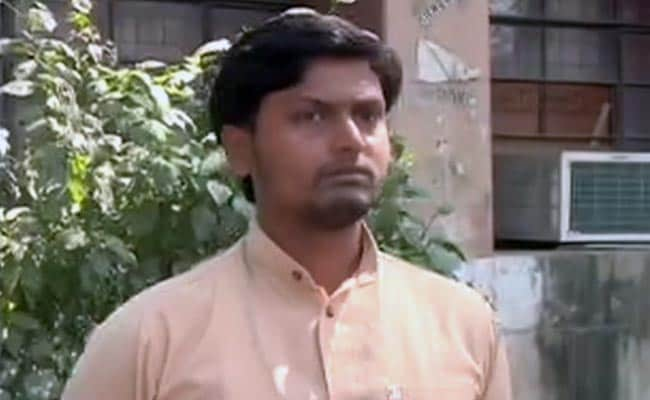Kanhaiya Kumar, President of the Left-affiliated JNU Students Union, was arrested on sedition charges last month.
- Saurabh Verma of BJP youth wing, JNU, reacts to Kanhaiya Kumar's bail
- Verma: We are not enemies but will react to slogans against country
- Verma: Kanhaiya's bail is conditional, waiting for final court verdict
Did our AI summary help?
Let us know.
New Delhi:
Kanhaiya Kumar's speech, delivered last night at the Jawaharlal Nehru University or JNU, where he pledged his commitment to fighting for "azaadi (freedom) not from, but in India" catalyzed him into a worldwide trend on Twitter. The nearly one-hour-long address was fiercely critical of Prime Minister Narendra Modi and his government. Unsurprisingly, students from the ABVP, the youth wing of the ruling BJP, aren't impressed.
Mr Kumar, President of the Left-affiliated JNU Students Union, was arrested on sedition charges last month, forging an international debate on whether the government is using the charge of "anti-national" as a fig leaf for cracking down on dissent and free speech.
Mr Kumar has denied making anti-India remarks at a rally at JNU in February, after which he was arrested. Footage of Mr Kumar that was televised by some news channels has been declared doctored by a forensic lab that was asked to examine the video by the Delhi government.

"Nobody is anyone's enemy here, everybody sits together and has tea as we discuss our ideologies, but if anyone is going to do sloganeering against our country we would react," said Saurabh Verma, General Secretary of the BJP's student wing at JNU. It was on the basis of an ABVP complaint that a BJP parliamentarian filed a police case last month, leading to the jailing of Mr Kumar after a controversial police raid on campus to find him. Two other students from JNU are still in prison.
Mr Kumar, 28, has been given bail by the Delhi High Court with a list of conditions that include a commitment to not participating "actively or passively in any activity which may be termed anti-national".
Mr Verma said that the Delhi government's inquiry, which clears Mr Kumar of making inflammatory remarks, is not the last word on the case. "Kanhaiya Kumar has got conditional bail; we believe in the workings of the court, we are waiting for the final result," he said.
Mr Kumar, President of the Left-affiliated JNU Students Union, was arrested on sedition charges last month, forging an international debate on whether the government is using the charge of "anti-national" as a fig leaf for cracking down on dissent and free speech.
Mr Kumar has denied making anti-India remarks at a rally at JNU in February, after which he was arrested. Footage of Mr Kumar that was televised by some news channels has been declared doctored by a forensic lab that was asked to examine the video by the Delhi government.

Saurabh Verma said that the Delhi government's inquiry, which clears Kanhaiya Kumar of making inflammatory remarks, is not the last word on the case.
"Nobody is anyone's enemy here, everybody sits together and has tea as we discuss our ideologies, but if anyone is going to do sloganeering against our country we would react," said Saurabh Verma, General Secretary of the BJP's student wing at JNU. It was on the basis of an ABVP complaint that a BJP parliamentarian filed a police case last month, leading to the jailing of Mr Kumar after a controversial police raid on campus to find him. Two other students from JNU are still in prison.
Mr Kumar, 28, has been given bail by the Delhi High Court with a list of conditions that include a commitment to not participating "actively or passively in any activity which may be termed anti-national".
Mr Verma said that the Delhi government's inquiry, which clears Mr Kumar of making inflammatory remarks, is not the last word on the case. "Kanhaiya Kumar has got conditional bail; we believe in the workings of the court, we are waiting for the final result," he said.
Track Latest News Live on NDTV.com and get news updates from India and around the world

